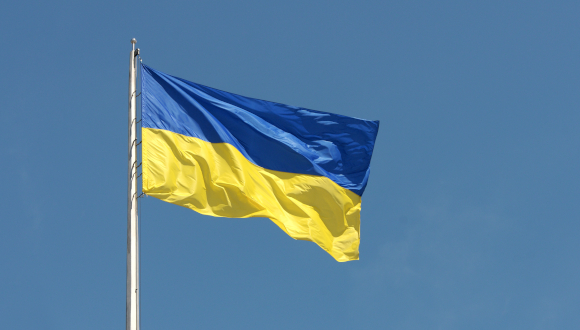New TAU study measures resilience of Ukrainian resistance to Russian invasion

First attempt by academic researchers to assess Ukrainian citizens’ coping indices during wartime
Support this researchA new study from Tel Aviv University (TAU) has found that the national resilience of the citizens of Ukraine, who are currently fighting for their independence, is comparatively very high (4.35) on a scale of 1 to 6. It is in fact significantly higher than the national resilience that characterized Israeli citizens at the height of Operation Guardian of the Walls in May 2021 (3.89).
The researchers explain this difference by saying that Ukrainian citizens now find themselves fighting for their homeland and are ready to do anything to win the war, but the rounds of fighting in Gaza have become a kind of recurrent nuisance for the citizens of Israel, leading to a more moderate level of national resilience.
The study was led by Professor Bruria Adini and Professor Shaul Kimhi of the ResWell Research Center at TAU’s Sackler Faculty of Medicine.
According to the researchers, the uniqueness of the current study is that it constitutes the first attempt by academic researchers to assess Ukrainian citizens’ positive and negative coping indices during wartime. The study indicates that in such conditions of conflict, a population may experience high levels of stress and, simultaneously, high levels of societal resilience and hope for the future. In the current situation in Ukraine, the population has also demonstrated a great deal of support for their government.
The study surveyed about 1,000 Ukrainian citizens, constituting a representative sample of Ukrainian society, as well as a sample of about 650 Israeli citizens using data collected during Operation Guardian of the Walls. The study’s findings suggest that the danger is perceived as much more tangible (3.7 on a scale of 1 to 5) in the eyes of Ukrainian citizens than Israelis’ perception of danger in the rounds of fighting against Hamas in Gaza (2.45). The perception of threat amongst Ukrainians is also more significant (3.29) than among the citizens of Israel (2.79).
Despite the significant dangers and threats they face, Ukrainian citizens have not lost hope, with their “hope index” being higher (an average of 3.95) than that of Israelis (an average of 3.5).
The researchers conclude that the younger population, those between the ages of 26 to 30, present higher levels of stress and post-traumatic stress symptoms compared to other age groups. In addition, women report higher levels of all negative coping mechanisms in comparison to men.
“The perception of a threat as existential to the survival and sovereignty of the state and society is likely, under certain conditions, to enhance the population’s societal resilience and sense of hope,” Professor Adini and Professor Kimhi say. “This is the case even when the population feels anxious and threatened by the situation. Moreover, it appears that the war launched by Russia against Ukraine has actually contributed to the process of Ukrainian identity-building, which also leads to increased levels of resilience, as well as an extremely high sense of hope.
“The Israelis, unlike the Ukrainian people, do not feel that their country is under a direct existential threat and have, to a certain degree, adapted to an ‘emergency routine’ due to the recurrent conflicts. In light of this, they present lower levels of resilience relative to Ukrainians, but at the same time higher levels of well-being and morale.”